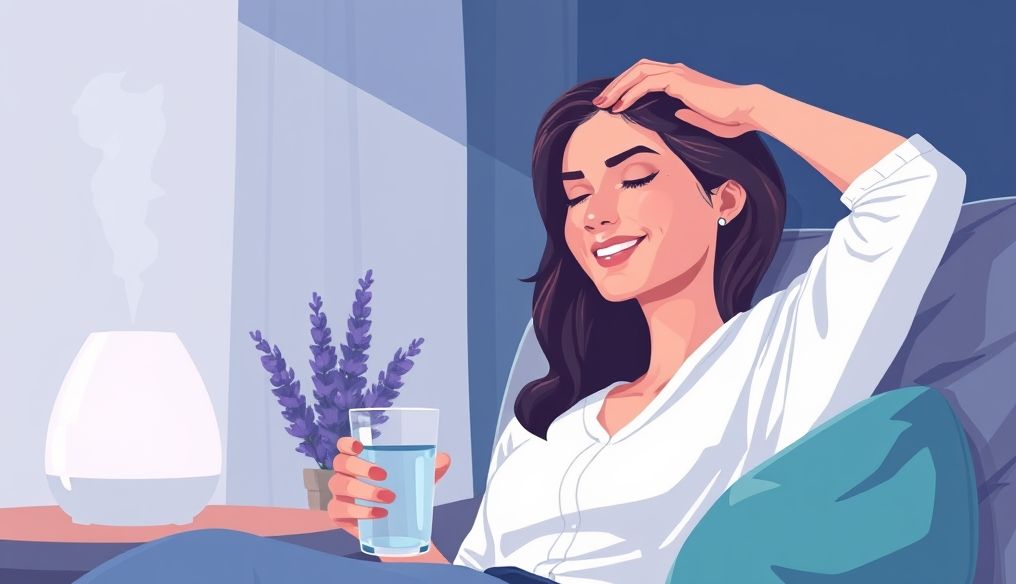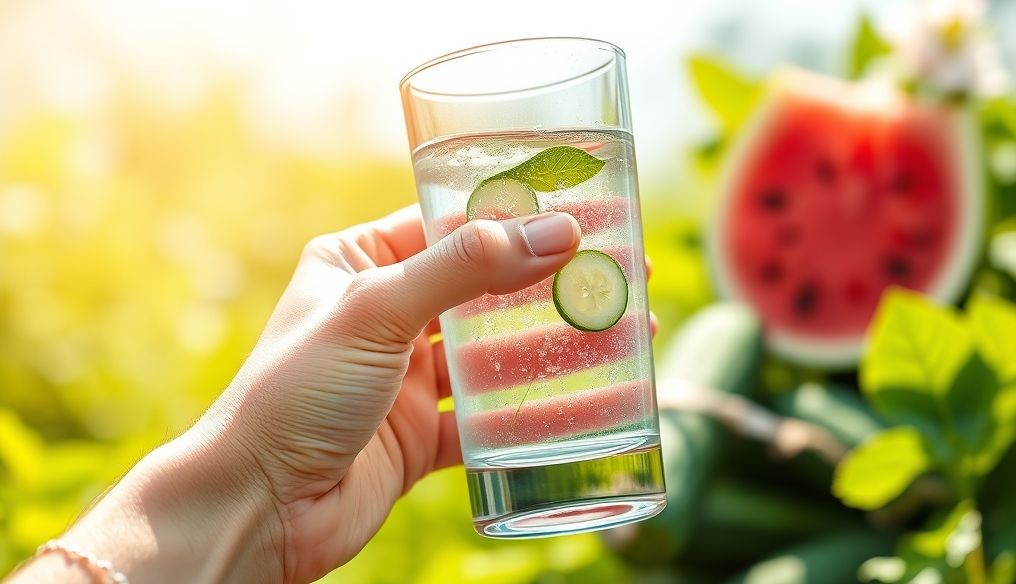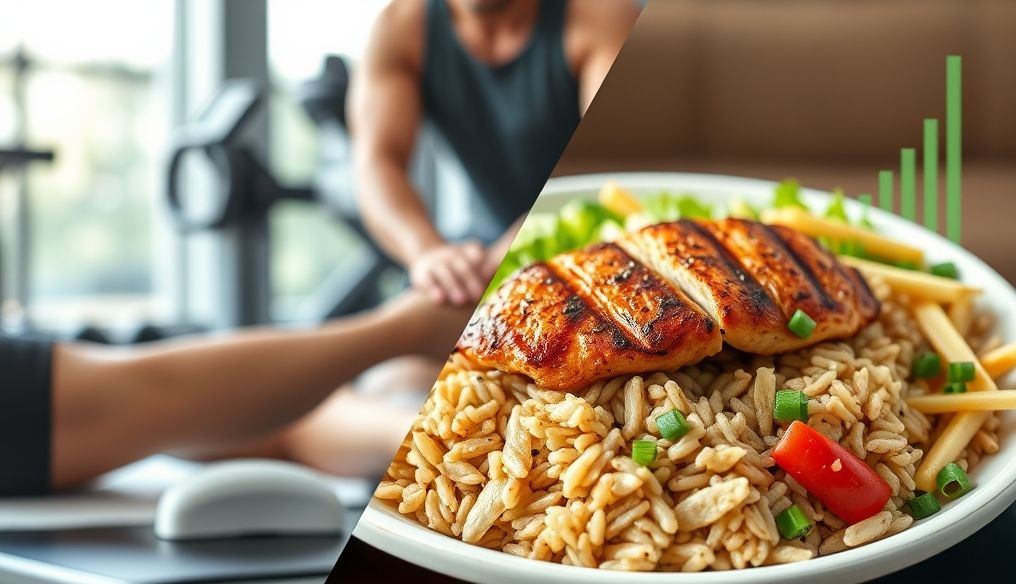Headaches: Causes and Types
A headache is not just pain in the head; it is a symptom that can have multiple causes. Understanding the type of headache you are experiencing can help you choose the appropriate treatment.
Common Types of Headaches:
- Tension Headaches: The most common, often described as a feeling of tightness or pressure around the head.
- Migraines: Characterized by throbbing pain, often accompanied by nausea and sensitivity to light and sound.
- Cluster Headaches: Severe, intense pain concentrated around one eye, which may be accompanied by a runny nose or congestion.
- Sinus Headaches: Occur as a result of sinus inflammation, accompanied by pain and pressure in the face.
Possible Causes of Headaches:
- Stress and Tension: Major triggers for tension headaches.
- Dehydration: Lack of fluids in the body can lead to headaches.
- Lack of Sleep: Not getting enough sleep.
- Skipping Meals: Low blood sugar levels.
- Caffeine: Excessive caffeine consumption or sudden withdrawal.
- Certain Foods and Drinks: Such as processed foods, aged cheese, and alcoholic beverages.
- Weather Changes: Atmospheric pressure and humidity.
1. Hydration: Water is the Magic Solution
Dehydration is a common cause of headaches. Drinking enough water can relieve or prevent headaches entirely.
How Much Should You Drink?
It is recommended to drink at least 8 glasses of water a day. If you exercise or live in a hot climate, you may need to drink more.
Signs of Dehydration:
- Extreme thirst
- Dry mouth
- Dark urine color
- Infrequent urination
Tips to Increase Water Consumption:
- Carry a water bottle with you and refill it regularly.
- Drink a glass of water before each meal.
- Eat foods rich in water, such as fruits and vegetables.
2. Cold and Warm Compresses: Local Pain Relief
Applying cold or warm compresses can help relieve pain by reducing inflammation or relaxing tense muscles.
Cold Compresses:
Reduce blood flow to the affected area, helping to reduce inflammation and pain. Use for migraines or tension headaches.
Warm Compresses:
Help relax tense muscles and increase blood flow to the affected area. Use for headaches caused by tension or neck stiffness.
How to Use Compresses:
- Apply the cold or warm compress to your forehead or back of your neck for 15-20 minutes.
- Repeat as needed.
3. Relaxation Techniques: Getting Rid of Stress
Stress is a major trigger for headaches. Learning relaxation techniques can help you reduce stress and prevent headaches.
Effective Relaxation Techniques:
- Deep Breathing: Take slow, deep breaths from your abdomen.
- Meditation: Focus on the present and try to calm your mind.
- Yoga: Combines physical exercises, deep breathing, and relaxation.
- Massage: Massage can help relieve tension in the muscles.
4. Massage: A Natural Treatment for Headache Relief
Massage can help relieve headaches by relieving muscle tension and improving blood circulation.
Beneficial Types of Massage:
- Head and Neck Massage: Focus on the areas where you feel tension.
- Deep Tissue Massage: Can help relieve chronic tension.
- Acupuncture: A traditional Chinese technique involving inserting thin needles into specific points in the body.
Tips for Self-Massage:
- Use your fingertips to massage your scalp and neck in circular motions.
- Focus on the areas where you feel tension.
- Use a soothing essential oil, such as lavender oil.
5. Aromatherapy: The Power of Essential Oils
Some essential oils have soothing properties that can help relieve headaches.
Effective Essential Oils:
- Lavender: Known for its calming and relaxing properties.
- Peppermint: Can help relieve migraines.
- Rosemary: Improves blood circulation and relieves tension.
- Chamomile: Has a soothing and anti-inflammatory effect.
How to Use Essential Oils:
- Inhale the oil directly from the bottle.
- Use an essential oil diffuser.
- Add a few drops to bathwater.
- Massage the oil on your forehead or back of your neck.
6. Dietary Modifications: Prevention is Better Than Cure
Some foods and drinks can cause headaches. Identifying these triggers and avoiding them can help prevent headaches.
Foods and Drinks to Avoid:
- Processed Foods: Contain preservatives and additives that can cause headaches.
- Aged Cheese: Contains a high level of tyramine.
- Alcoholic Beverages: Especially red wine and beer.
- Caffeine: Excessive consumption or sudden withdrawal.
- Artificial Sweeteners: Such as aspartame.
Foods That Can Help Relieve Headaches:
- Fatty Fish: Rich in omega-3 fatty acids.
- Green Leafy Vegetables: Rich in magnesium.
- Nuts and Seeds: A good source of magnesium and healthy fats.
7. Getting Enough Sleep: Rest is Essential for Health
Lack of sleep can cause headaches. Getting enough sleep can help prevent headaches and improve your overall health.
How Much Should You Sleep?
Most adults need 7-8 hours of sleep each night.
Tips to Improve Sleep Quality:
- Go to bed and wake up at the same time every day.
- Make your bedroom dark, quiet, and cool.
- Avoid caffeine and alcohol before bed.
- Practice relaxation techniques before bed.
8. Regular Exercise: Physical Activity Improves Health
Exercise can help relieve stress and improve blood circulation, which may help prevent headaches.
Beneficial Types of Exercise:
- Walking: A simple and easy exercise that everyone can do.
- Swimming: A gentle exercise on the joints.
- Yoga: Combines physical exercises, deep breathing, and relaxation.
How Much Should You Exercise?
It is recommended to exercise moderately for at least 30 minutes most days of the week.
When Should You See a Doctor?
If your headaches are severe, frequent, or accompanied by other symptoms, such as fever, stiff neck, or vision problems, you should consult a doctor.
Important Note: These tips are for general guidance only and do not replace consulting a healthcare professional. If you suffer from chronic or severe headaches, it is essential to get an accurate diagnosis and appropriate treatment plan from a doctor.




